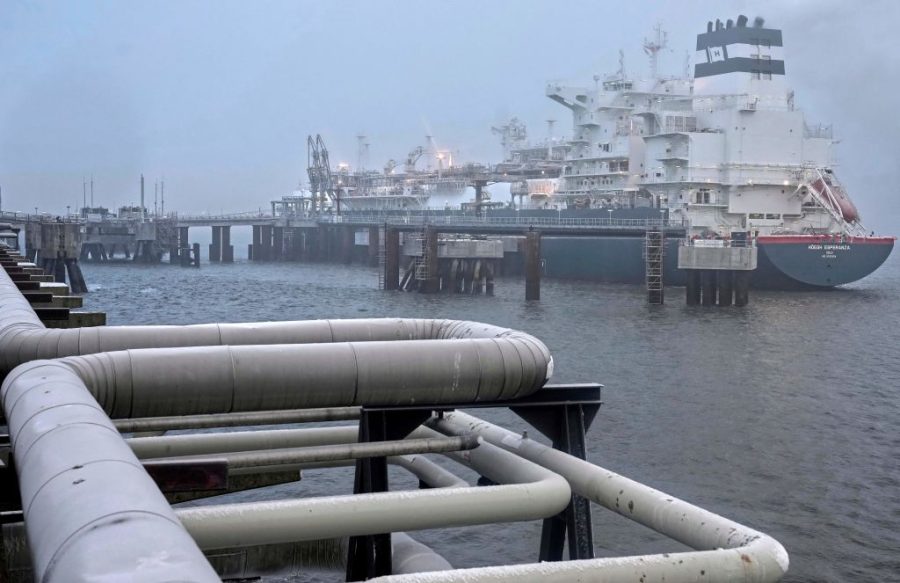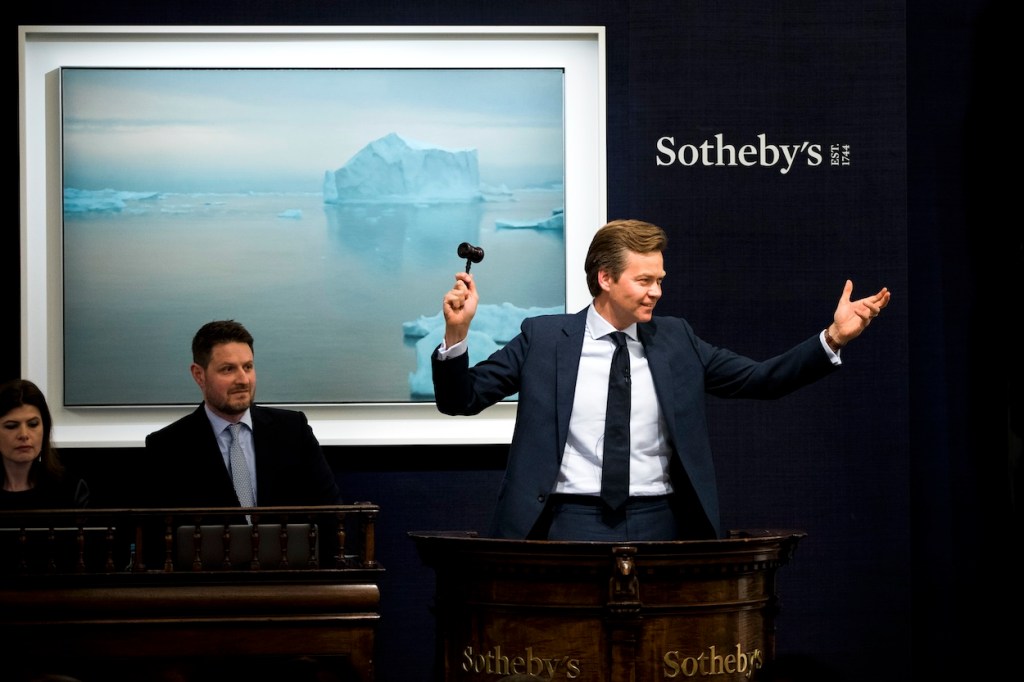Despite imposing economic sanctions on Russia, the European Union has been importing record amounts of liquefied natural gas (LNG), a report has found. Russian LNG is exempted from the EU’s sanctions. A German state-controlled energy company appears to play a major role in this circumvention of sanctions. It’s not the only indicator that Germany is more reluctant to break its old ties with Russia than it lets on.
The clamour for resuming economic ties with Russia comes from many different corners
According to data collated by the commodities intelligence firm Kpler and first reported on by the news outlet Politico, the EU imported 837,300 metric tons of Russian LNG in the first 15 days of 2025 alone, up from 760,100 tons last year. There is a combination of factors at play to explain this increase. For one thing, there was increased demand for energy due to a cold December combined with a so-called ‘Dunkelflaute’ – cloudy, windless weather, which makes renewable energy production less efficient. For another, an agreement that allowed Russia to send gas to Europe through pipelines running through Ukraine came to an end on 1 January. Unsurprisingly, Ukraine doesn’t want to extend the deal. So now the shortfall has created increasing energy demand in countries like Hungary and Slovakia which rely on the pipelines.
In theory, this shouldn’t affect Germany which, unlike the pro-Kremlin governments in Hungary and Slovakia, vowed to wean itself off Russian gas. Tough economic sanctions were supposed to strangle Vladimir Putin’s war effort in Ukraine. Germany, initially reluctant to join in due to its strong dependence on the cheap Russian energy that fuelled its economic model, eventually made one of the largest sacrifices in cutting itself off from Russian fossil fuels. This was celebrated as an unmitigated success, and the German government claims on its official website: ‘Since the beginning of 2023, Germany has been independent of Russian energy.’
Yet reports estimate that in 2023, up to 9 per cent of German gas imports may still have consisted of Russian LNG. This is made possible by the fact that there are no EU sanctions on Russian LNG. It’s legally imported through the French port of Dunkirk and then fed into the European gas network where it becomes untraceable.
The German government-owned energy company Securing Energy for Europe (Sefe) appears to be central to this process. Once a 100 per cent subsidiary of the Russian majority state-owned company Gazprom, Sefe was put under the control of Germany’s federal energy regulator in 2022, following the invasion of Ukraine. Still, it’s importing record numbers of Russian LNG.
Despite being controlled by a state that vowed to stop importing Russian gas, Sefe argues it has to buy the contracted amounts of LNG because there is no legal reason to break the binding agreements that were already in place. Even if it didn’t accept the deliveries, it would have to pay for them, allowing Russia to sell the gas elsewhere and get paid twice.
All of this begs the question of why Russian LNG is exempted from the sanctions in the first place. And why isn’t this a matter of debate in German politics? I suspect the answer lies in the fact that the clamour for resuming economic ties with Russia comes from many different corners of Germany.
One economic expert calculated recently that Germany’s GDP has shrunk by 5 per cent as a result of the war and the sanctions that followed. That’s significantly higher than any other country. The UK came in at half that loss with a 2.5 per cent contraction. Of course, one can argue that Germany only has itself to blame for making itself so reliant on Russian fuel in the first place, but that won’t change the clamour from parts of its mighty industrial lobby to return to more cordial relations with the Kremlin as soon as possible.
The German economy has shrunk for two consecutive years now, which in turn has caused immense pressure on living standards, social cohesion and political goodwill amongst the general population. This plays a huge part in the way many voters have turned their backs on mainstream politics. After immigration, the economy is their second most pressing concern, according to polls.
The solution offered by populists is a resumption of economic ties with Russia. On the right, there is the Alternative für Deutschland (AfD), currently the second strongest party in the polls. Its manifesto demands the ‘restoration of undisturbed trade ties with Russia’. On the left, the new Bündnis Sahra Wagenknecht (BSW) explains the invasion of Ukraine as ‘Russia defending itself against western military installations in its periphery’ and offers its voters a full restoration of the Nord Stream pipelines in order to ‘receive cheap natural gas again’.
Either tapping into such sentiments or into his party’s former close ties to Russian politics and industry, Chancellor Olaf Scholz of the Social Democratic Party (SPD) recently caused a stir when, according to media reports, he blocked his own coalition’s proposal for a €3 billion (£2.5 billion) aid package for weapons to Ukraine.
Hanging over all of this are the German snap elections which are due to take place on 23 February. Following the recent deadly knife attack by an illegal immigrant from Afghanistan in a park in Bavaria, the campaign has been dominated by the issue of immigration, meaning parties aren’t going to touch the issue of Russian energy with a bargepole at the moment.
As it stands, the conservative CDU/CSU, which has recently been one of the more bullish parties in support of Ukraine, will most likely win the election. But it will be faced with the same pressures to restore the flow of cheap Russian energy to Germany as its predecessors. It may not cave to them as easily as previous governments, but as far as Russian LNG is concerned, it too may well decide to let sleeping dogs lie.








Comments